Anyone who has gaming blood running in their veins has at some point of time tried multiplayer games. These connect players from around the globe who play a certain game, against, or by teaming up with each other. One could play among a local group or connect with the internet and go global.
The former is achieved using a LAN, a local area network, while the latter requires Internet or WAN, a wide area network.
Some great games were created using local multiplayer in mind. However, one does not always have companions available locally. Then, LogMeIn Hamachi plays an important role. It is a Virtual Private Network(VPN) application. This Hamachi application creates a network connection with all other systems connected in the network and will give the feel of LAN connection in normal internet connection. So, basically, you have a LAN connection spread over the entire globe, thanks to it.

This makes life easier for a lot of gamers as, without it, port forwarding would have been necessary, which is a very tedious and complicated process.
However, it also has more than its fair share of cons. The free version of Hamachi allows a maximum of five users to connect at once. It also has latency issues and slows down the gaming experience for many.
Thus, there has been a rising clamor for a more effective alternative to Hamachi. Here is a list of top Hamachi alternatives:
1. GameRanger (https://www.gameranger.com/)
If you are looking for an easy interfaced and secure alternative, look no further. Although GameRanger offers lesser features as compared to its contemporaries, security and stability provided by GameRanger are unmatched since unlike other Virtual LAN gaming clients, this particular hamachi alternative GameRanger is not making use of drivers to create the LAN connection. But at the same time, it is achieved through its client and the other main advantage of Game Ranger is that there are very low pings and high security.
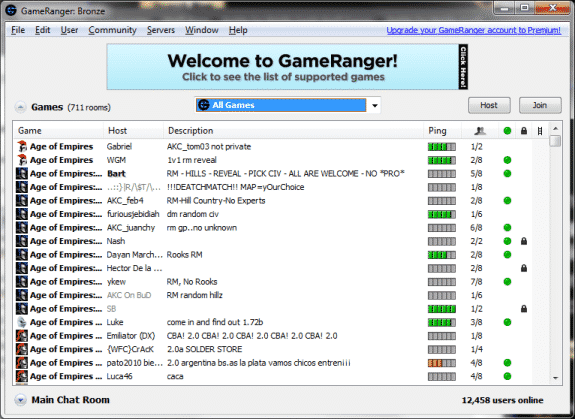
Unfortunately, while Hamachi is compatible with all LAN games over the internet, GameRanger works only with its list of supported games since support for each game is added manually. If your game is already supported, you are looking at the best possible alternative to Hamachi. GameRanger is a free and open source.
2. NetOverNet (https://www.netovernet.com/)
NetOverNet is a powerful but simple VPN emulator. The user interface is easy and multiple devices can be connected using the internet with a single click. Every PC connected to the network has its own login credentials for a connection and is accessible in the user’s virtual network by an IP address defined in the private area.
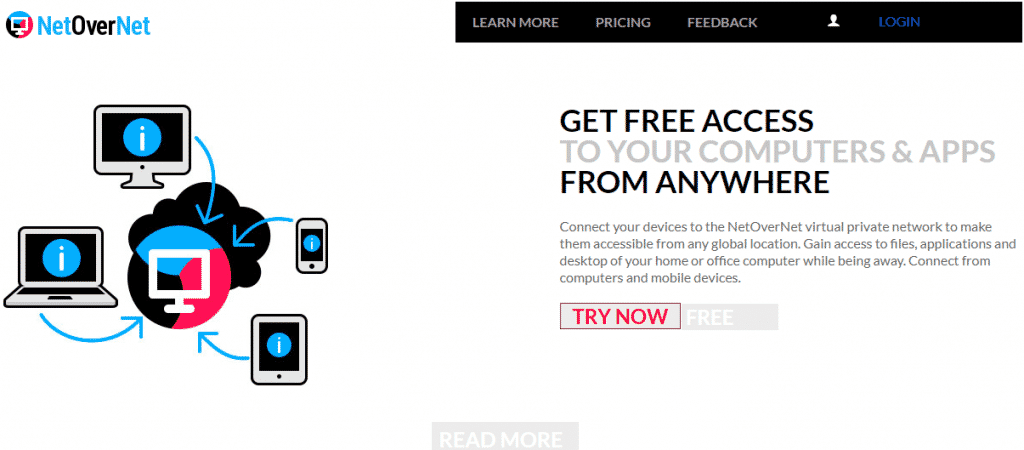
NetOverNet allows you to access directly all remote PCs that belong to the VPN, thus making data transfer across all devices possible. The maximum number of clients one gets is only 16 on the advanced payment plan. Even though this one will not be a suitable one for public network gaming but you can use it to host private LAN game sessions, making it a good alternative to Hamachi.
3. FreeLAN (https://www.freelan.org/)
FreeLAN is completely open source and one of the most straightforward application to use for forming your own gaming VPN. It can be customized to create a network following different network topologies such as client-server, peer-to-peer, or hybrid.
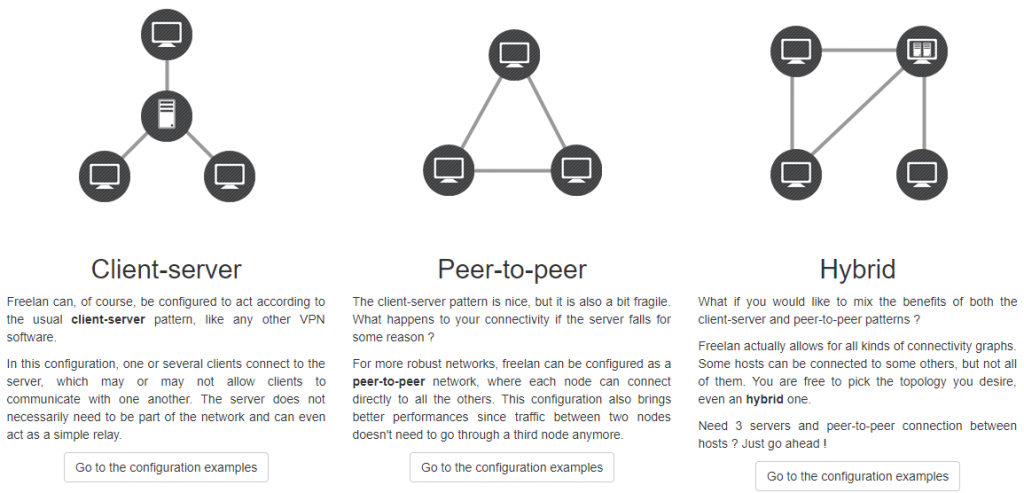
However, one of the main drawbacks of the software is it lacks a graphical user interface. The FreeLAN config file needs to be manually configured in order to run the software. Nevertheless, it boasts a highly active community, so you will always have support. The application runs smoothly without any lag, and there are no unexpected ping spikes.
4. ZeroTierOne (https://www.zerotier.com/)
ZeroTier One is FOSS(free and open source software) that allows you to arrange controllers which you can use to create and look after the agreeable web control boards. You can use it to create and join virtual VPN servers and associate it with any gadget within a matter of minutes. It calculates the physical path between devices spread over the world and re-finds new ways when the physical location of the devices change.
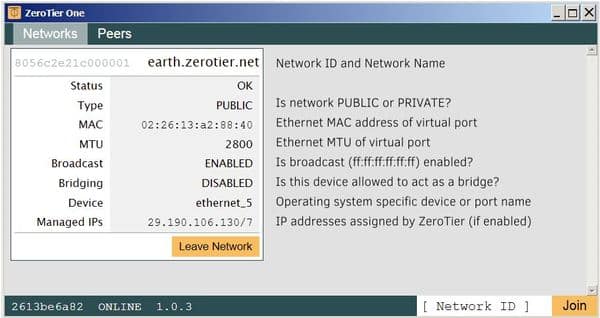
ZeroTier connected systems are encrypted end to end which means information may be streamed at any feasible point with security, proficiency, cost effectivity, and enhanced versatility.
5. Evolve (https://www.evolvehq.com) (https://player.me)
Evolve is the most exciting project in the world of a VPN application. Evolve has rapidly risen to become the primary choice for a lot of hardcore gamers. Like Hamachi, it also has its extra tunneling drivers and network adapters for data transfer. However, Evolve imitates Steam, having lots of features that work within thousands of games. Hence, you can make direct game purchases from inside Evolve’s client only.
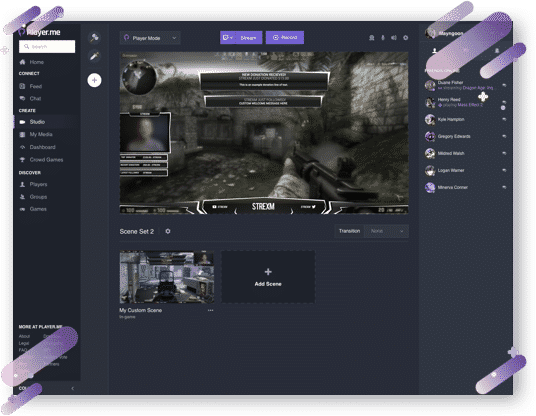
Evolve’s upcoming version, Evolve 2.0, has a live streaming option integrated within its user interface to all mainstream platforms which include Facebook, YouTube, and Twitch along with other staple features such as party mode and matchmaking. Other than that, Evolve also gives its users the option to text and voice chat with their friends using the client.
6. Wippien (http://www.wippien.com/)
Wippien is an ultra-lightweight piece of software and is recommended if you’re a gamer who is averse to bloating the system. The weird name might be misleading but the tool itself is really simple to use.
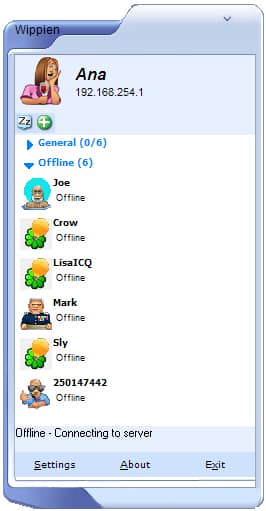
Wippien uses the WeOnlyDo wodVPN component to establish a peer to peer connection with its clients for establishing the Virtual private network. Also, it is FOSS(free and open source software). Sadly, the application allows only Gmail or Jabber accounts to register. Others aren’t supported as of now but will be added gradually.
7. SoftEther (https://www.softether.org/)
SoftEther VPN is very fastest and easy to use. It is a multi-conventional VPN programming software used to host virtual game sessions. It is a free and open-source, platform-independent, multi-protocol VPN client, and VPN server software.VPN protocols such as L2TP/IPsec, SSL VPN, OpenVPN, and Microsoft Secure Socket Tunneling Protocol are also offered in a single VPN server.
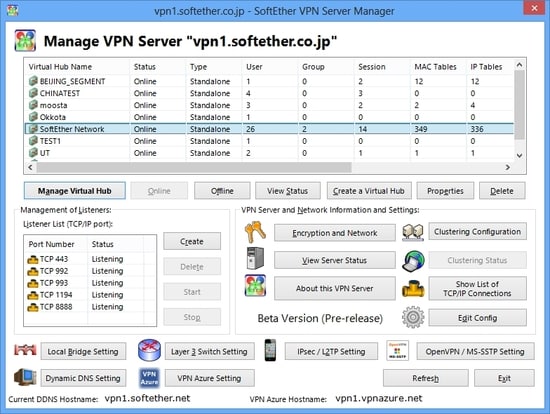
SoftEther VPN can be used on a lot of operating systems such as Mac, Windows, Linux, Solaris, and FreeBSD. It enhances performance by reducing memory copy operations, using full Ethernet frame utilization, parallel transmission, and clustering. Together, these reduce latency normally associated with VPN connections while increasing overall throughput.
8. Shrew Soft VPN Client (https://www.shrew.net/)
Shrew Soft VPN Client, despite being a very lightweight application, provides a great trove of elements. It has some advanced features including IKE Fragmentation, Split DNS, Split Tunneling, Nat Traversal, Packet Pre Fragmentation, Dead Peer Detection, Hybrid XAuth, and automatic configuration of the client.
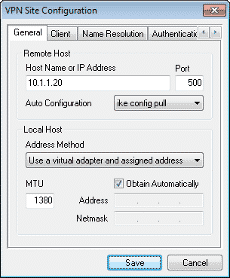
It is a true VPN client since it connects to an existing VPN server, whether that is from the big titans such as Cisco or Juniper, or from smaller players such as Cisco’s Linksys. This software is recommended if you already own a VPN server, else, you might want to consider other alternatives to Hamachi.
9. Comodo Unite
Comodo Unite (free) allows users to create a Virtual Private Network without a hassle for a group of devices to transfer data and various other media over encrypted connections. It offers secure and private networks to share and transfer data.

You will have to register an account with the Comodo servers before you can create the virtual networks on the fly. All the game data transfer is secured with SSL encryption of 128-bit.
10. Radmin VPN (https://www.radmin-vpn.com/)
Radmin VPN is a great piece of software for LAN emulation over the internet, and many users swear by it till today. The free version of Radmin VPN does not restrict the number of gamers. Moreover, lag and latency is never an issue thanks to the technical crew of Radmin VPN. Radmin VPN provides speeds up to 100Mbps and also offers you a secure VPN tunnel. This keeps your connection safe and privacy ensured. The software, unlike its contemporaries, is quite easy to configure and set-up. Thus, this is another great alternative to Hamachi.
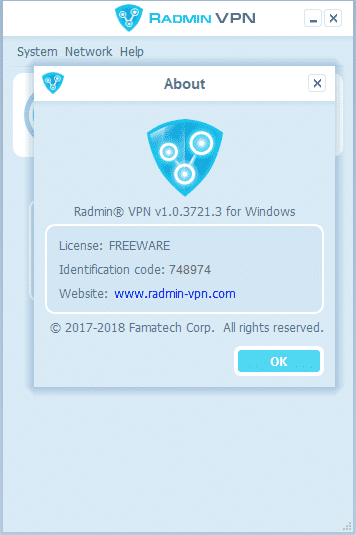
That’s the list I curated keeping speed, portability, and cost in mind. Since Hamachi hasn’t aged well with gamers, one of these is the most likely and worthy successor. So we hope that you find your best Hamachi alternative!